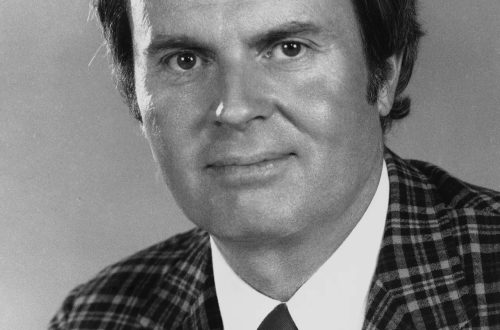The Setting
About 15 minutes into tonight’s meet-the-candidates event — or was it a debate? — at Lone Peak High School, there were about 70 citizens in attendance. That’s a good turnout. About ten of them were children of various ages, including my very cooperative nine year old; this is also good.
Another dozen or so trickled in later. I didn’t see anyone leave early.
The debate was moderated by State Representative Mike Kennedy, who represents Highland, Alpine, and Cedar Hills, give or take. I wonder if he was nervous, sitting next to State Auditor John Dougall, who is very highly regarded locally as a moderator.
I won’t be attempting a play-by-play report or analysis of the event, but I will share some impressions and document my evolving evaluation of some candidates.
Alpine School District Candidates
The first half of tonight’s debate at Lone Peak High School involved a race in which I cannot vote, because I’m not in Wendy Hart‘s and Lynne Mower‘s district. However, I was interested to experience Wendy Hart in person, after admiring her work from afar for years.
It was the Wendy Hart show, because Ms. Mower didn’t show up. Reportedly, she backed out in protest over the local PTSA being excluded from sponsorship of the event, on the grounds that it is not the nonpartisan, apolitical organization it claims to be. (This is not news. These “nonpartisan” school board elections divide reliably between two de facto parties: the public education establishment’s candidates and the people’s candidates.) Refusing to appear for the event probably played well with some of Ms. Mower’s establishment base, but it ill served the voters — and at least several dozen voters know it.
So Ms. Hart, the incumbent, made an opening statement, fielded question after question after question, made a closing statement, and left me quite satisfied politically. If she doesn’t win this race, she’s welcome to move to American Fork. I’d like to vote for her.
We have a common professional background, she and I, as programmers, database geeks (my word, not hers), and specialists in data migration. But her political charm was elsewhere for me. It was in
- her sense of obligation to follow state law, even if her (or her constituents’) ideology dictated a different result in the matter of certain controversial school clubs;
- her knowing state law in the first place, and feeling obligated to know it;
- her definition of the purpose of education as twofold: conveying the knowledge we possess to others (here, children), and giving them the tools to keep learning for the rest of their lives — all else is byproduct, she said, including preserving our form of government and preparing for jobs;
- her sense that her job is to represent the people in governing the people’s schools, not to cooperate in all things with the administration; and
- her careful, rational, generally data-driven approach to numerous issues, including Common Core.
To be sure, in these matters and more she reminded me this evening of no one more than My Favorite (now Former) City Councilor, one Heidi Rodeback. We need more such women — and men — in our politics.
There was a point or two on which I disagreed somewhat — more matters of degree than philosophy — but I was quite favorably impressed.
The empty chair next to her was silent for the duration.
State School Board Candidates
[I recommend you compare the evaluation here with what I wrote yesterday in my election guide. It will show you (a) why we voters need to spend time with candidates, when we can; and (b) why every candidate needs not only a web site, but a good web site that does justice to the candidate and her views.]I had never been to a state school board debate. I had never heard of such a thing. Candidate Joel Wright said tonight’s event may have been the first of its kind in the history of Utah, because people who pay attention to such things can’t remember another.
The following will reflect the fact that I was there more to evaluate the candidates themselves than parse their positions — which, let’s face it, are rather predictable.
Heather Groom is the incumbent and has the endorsement of the Utah Education Association, which tells you she is from the establishment party. She initially backed out of the event over the PTA thing, too, but finally decided to attend.
She seemed to go out of her way to say all the right things, to avoid offending anyone. As her answers and statements ended, I often couldn’t think of anything definite she had actually said. Instead of being for and against things — mostly — she said we need to be careful of this, and have further study of that. We need to find out more. I know your concerns. And then, tellingly, “I don’t want to give myself a label.”
She wasn’t really objectionable; she gave hardly anyone anything to which to object, where actual issues are concerned. She did declare a lot of nice principles, but everyone has principles. You can’t run in Utah without principles. I will admit she surprised me when she said — albeit very safely in that room — “Collective bargaining is not a viable solution.”
She’s intelligent, and she’s not the worst establishment candidate you’ll ever see. But she’s a little slippery, or at least she was tonight.
Joylin Lincoln was a revelation. All I had on which to base judgment before tonight was her web site, which is not serving her well. As a candidate, she’s green but very promising. She is smart, articulate in an understated way, connects principles and policies with relentless good sense, and was utterly charming.
She’s a former teacher, who speaks of being misled and strong-armed by teachers union officers early in her career, in ways which are now illegal. She was candid, personal, and humble tonight (which is not even remotely the same as spineless or weak). She has a level of commitment for which I long in many local candidates: besides serving in various roles, she has been attending State Board of Education Meetings faithfully for several years.
She doesn’t like Common Core, prefers local control, etc. — but shows no signs of being impractical, let alone ideologically poisoned.
If Wendy Hart won’t move to American Fork, perhaps Ms. Lincoln will?
Meanwhile, I believe she would serve us well on the State Board of Education. I’m quite certain she won some votes tonight.
Joel Wright I have known for years, and he was Joel Wright tonight: intelligent, articulate, charming, less inclined to fawn on the voters than many candidates are — though you can catch him at it occasionally. That’s politics. He has a long resume of education-related service, too.
He is an attorney who specializes in education law. Some people think that profession is a disqualification for everything, but it wasn’t so for John Adams or Abraham Lincoln — or Mike Lee, if you ask me. I’m not saying Mr. Wright is in their leagues, but I think his legal experience would serve us very well on the state board. Very well indeed.
So as to my vote . . . I wish I could vote for two, but I never really wanted to live in Chicago, much as I enjoy visiting there.
Disruptive is an overused term in some circles, but I value it in the education establishment these days. Ms. Lincoln is highly qualified and has the potential to be disruptive in a very productive way. Mr. Wright is more seasoned politically by far and has those legal qualifications I mentioned; I think he is positioned to be more disruptive sooner, in an equally or more effective way. She will be a force; he will be a greater force, at least for now. Therefore, he gets my vote.
That said, I have to say that one likely outcome is that these two will divide the vote from what I’ve called the people’s party, throwing the victory to the establishment candidate. That wouldn’t be a disaster, I suppose, but I’m hoping for better.
I’m not saying Lincoln or Wright should do anything about that, but it would certainly be interesting if one or the other did.


Kristen Shumway Leyden says:
Thank you for your thoughtful information.
Daniel Zappala says:
I am likewise disappointed that Lynne decided to bow out of the debate. Though she may have had a good reason, not showing up means your opponent gets to control the message.
My main disagreement with your analysis here is that you have divided the candidates into two camps, represented as “establishment” candidates versus “people’s” candidates. I’ve been quite involved and informed in the race between Wendy Davis and Lynne Mower. Yes, it’s true, Mower is well-liked by teachers and administrators. This is because she is actually involved in the schools and has a pleasant temperament, NOT because she is their puppet and will rubber-stamp what they want. She knows how to get things done without constantly being a stick in the eye. Even if you insist on calling that “establishment” it doesn’t mean she is not a “people’s” candidate too. She is really dedicated to hearing from parents and helping them solve their problems. She wants to be a representative of parents, and an advocate for their kids, first and foremost. Contrast this with Wendy Hart, who, in my experience, has had little inclination to listen to parents. She has her mind made up on Common Core and has set that as her agenda, regardless of what parents she represents want he to do. She views herself as someone who has to fight the district, not someone who will listen to parents and help them with her concerns. I dislike single-issue candidates, and I dislike candidates with a national political agenda in a local school board race.
I think your classification of candidates into establishment and people’s candidates is facile. There’s a lot more going on here.
I would say a better description of this race is that Wendy Hart is clearly campaigning against Common Core and is in favor of increasing “local control”, which I understand to mean putting more decisions in the hands of principals and parents for their school, and cutting out the district. On the other hand, Lynne Mower believes in getting parents, teachers, and the administrators all on board and working together toward the common goal of helping our kids get the best education possible. She sees value in the district, which enables cross-training and sharing ideas among schools. Wendy wants to make significant structural changes that would convert traditional public schools into something like charter schools. Lynne likes our traditional public schools and wants to work to make them as good as possible, while also helping parents use charter schools or homeschooling if that is a better fit for them.
David Rodeback says:
Daniel, thanks for reading and for commenting.
My classification of candidates into unofficial parties is at best a simplification, I know. I hope that all candidates are more (and more nuanced) than even their official partisan affiliations — and yes, I know these are officially nonpartisan races. Some candidates are probably less than their party, which is sad indeed.
That said, I still think the establishment/outsider divide is the primary feature of local school board politics these days. And the us vs. them dynamic and rhetoric don’t just come from the outside.
In any case: I particularly like how you said this: “I dislike candidates with a national political agenda in a local school board race.” You said school board, but I see it a lot in city council and mayoral races too. When they tell me how many times they’ve read the US Constitution, I commend them and ask them how much of the city’s municipal code and development code they’ve read. Usually none.